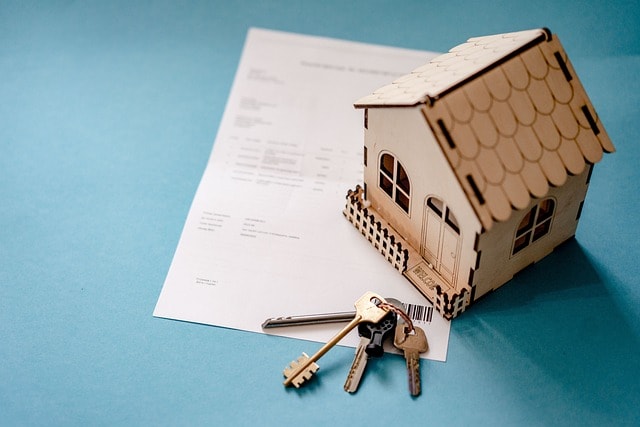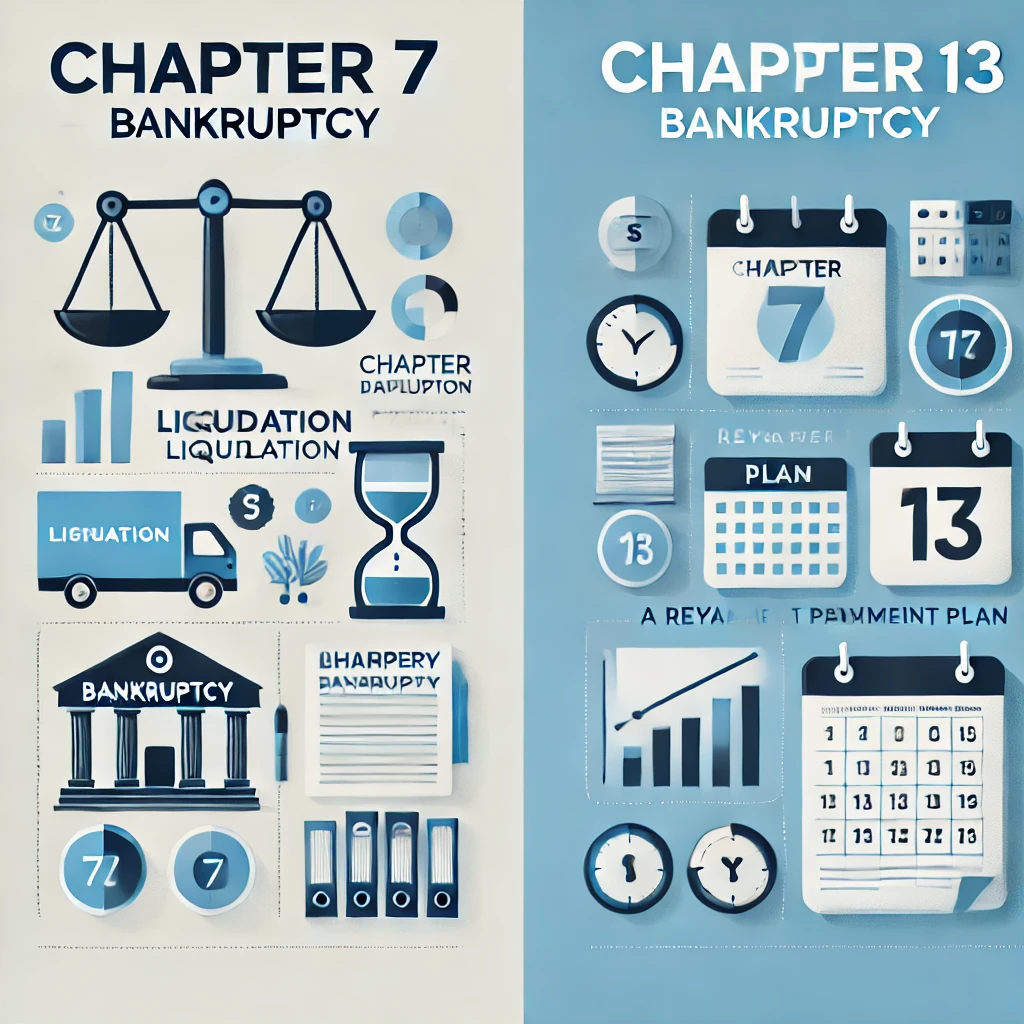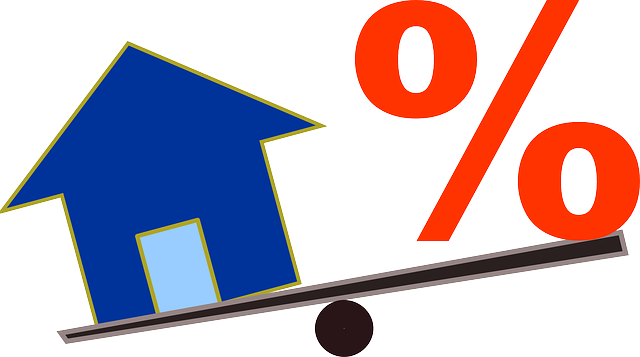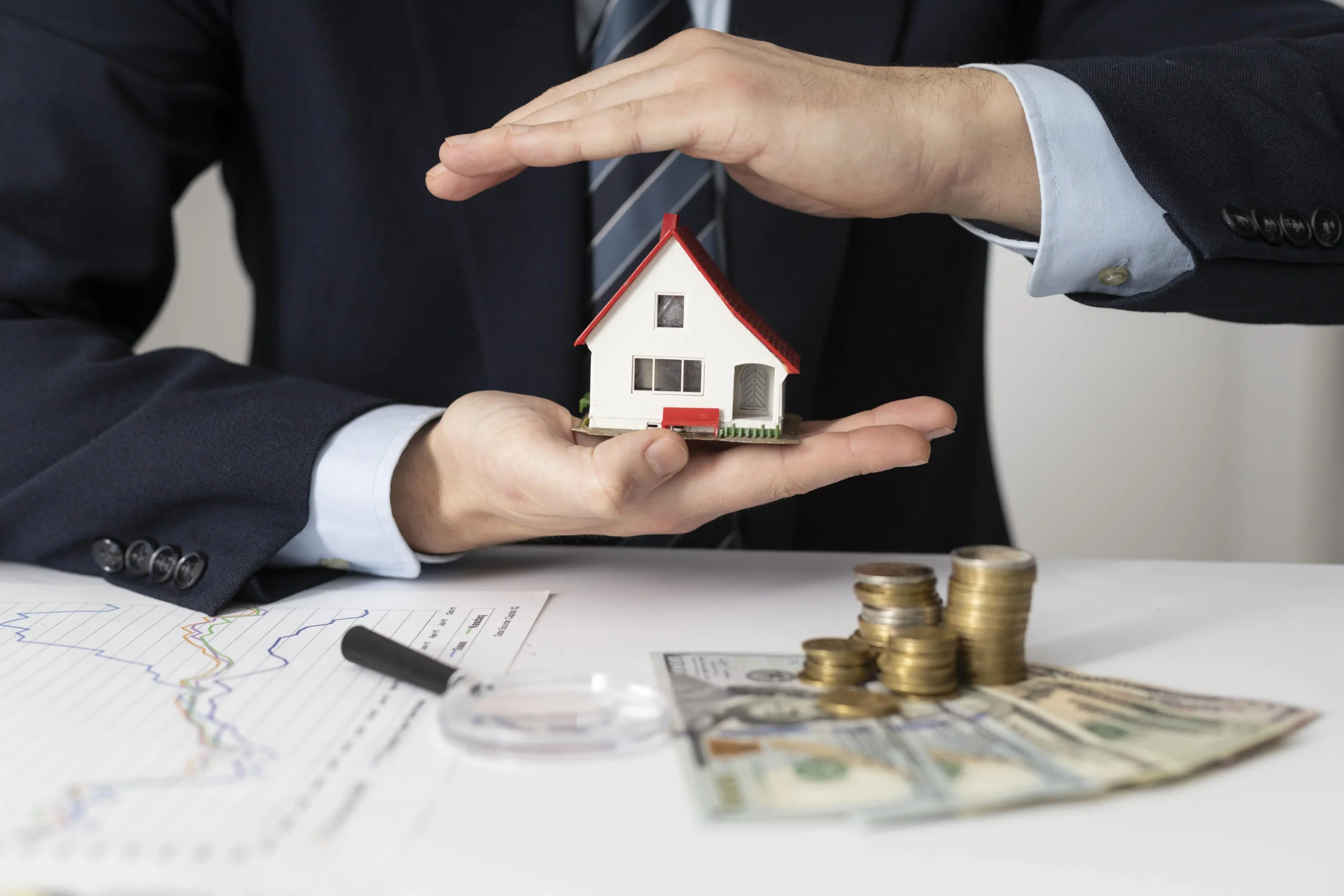
Declaring Chapter 7 bankruptcy can feel overwhelming, but it’s an excellent opportunity to eliminate a majority of your debts. One concern for individuals after a bankruptcy filing is, “How soon can I buy a house after Chapter 7?”
Understanding the loan waiting period and other criteria for buying a house after Chapter 7 can help you to make solid plans for homeownership while alleviating a lot of stress. In this guide we’ll discuss typical “waiting periods” for each type of mortgage loan, eligibility factors, and the best way to increase your odds of owning a home after filing bankruptcy
Understanding Chapter 7 Bankruptcy
Also known as a “liquidation bankruptcy,” Chapter 7 is a process of selling off assets to repay your creditors in full or part. Personal loans are one of the types of unsecured debts that can accumulate and lead to the need for Chapter 7 bankruptcy. This typically takes four to six months, but can be longer depending on the circumstances.
At the end of the process, all eligible debts are eliminated by the bankruptcy court. While Chapter 7 bankruptcy offers debt relief, it negatively affects your credit score and overall finances. A Chapter 7 bankruptcy stays on your credit history for a decade making it harder (but not impossible) to get credit such as a home loan during that time. However, after Chapter 7 discharge can I buy a house? Yes, but timing and preparation are key.
Types of Bankruptcy and Their Impact on Home Buying
What is Chapter 7 Bankruptcy?
Chapter 7 bankruptcy, often referred to as “liquidation bankruptcy” or “straight bankruptcy,” involves the liquidation of a debtor’s assets to pay off creditors. When you file for Chapter 7, a trustee is appointed to take control of your assets, sell them, and use the proceeds to pay off your debts. While this process can be daunting, it ultimately leads to the discharge of most of your debts, giving you a fresh financial start. However, it’s important to note that certain debts, such as taxes, student loans, and child support, are typically not dischargeable under Chapter 7. Understanding the specifics of Chapter 7 can help you navigate the process more effectively and prepare for life after bankruptcy.
When it comes to buying a house after bankruptcy, understanding the type of bankruptcy you filed is crucial. There are two main types of personal bankruptcy: Chapter 7 and Chapter 13. Each has its own set of rules and waiting periods that can impact your ability to get a mortgage.
Chapter 7 vs. Chapter 13 Bankruptcy

How Does Chapter 7 Bankruptcy Affect Credit Scores?
Filing for Chapter 7 bankruptcy can have a significant impact on your credit score. When you file, the bankruptcy is reported to the credit bureaus and can remain on your credit report for up to 10 years. This can make obtaining credit in the future more challenging, as lenders may view you as a higher risk. Additionally, your credit score is likely to drop significantly, which can affect your ability to qualify for loans and credit cards. However, it’s not all doom and gloom. By taking steps to rebuild your credit, such as making consistent on-time payments, using a secured credit card, and regularly checking your credit report for errors, you can gradually improve your credit score and work towards qualifying for a mortgage loan in the future.
Chapter 7 bankruptcy, often referred to as liquidation bankruptcy, involves discharging most or all of your debts. This type of bankruptcy typically stays on your credit report for up to 10 years. On the other hand, Chapter 13 bankruptcy is known as reorganization bankruptcy. It involves creating a plan to repay your creditors over a period of time, and it usually stays on your credit report for up to 7 years.
The type of bankruptcy you filed can significantly impact the waiting period before you can apply for a mortgage. For instance, if you filed for Chapter 7 bankruptcy, you may need to wait 4-10 years from the court discharge date before you can apply for a conventional mortgage. Conversely, if you filed for Chapter 13 bankruptcy, the waiting period is generally shorter, ranging from 4-7 years from the court dismissal or discharge date. Understanding these differences can help you better plan your path to homeownership after bankruptcy.
Waiting Periods for Buying a House After Chapter 7
The waiting periods for buying a house after Chapter 7 bankruptcy varies depending on the type of mortgage loan you’re interested in. How long after Chapter 7 to buy a house will depend on waiting periods for different loan types:
It is crucial to demonstrate the ability to make consistent mortgage payments to improve your chances of loan approval. Proving to lenders that you can reliably make these payments, despite prior financial difficulties, is essential.
Conventional Loans
How Long After Chapter 7 Do You Have to Wait to Buy a House?
The waiting period to buy a house after filing for Chapter 7 bankruptcy varies depending on the type of mortgage loan you are applying for. For a conventional loan, you typically need to wait 4 years from the date of your bankruptcy discharge. If you’re considering an FHA loan, the waiting period is generally 2 years from the discharge date. Similarly, for a VA loan, the waiting period is also around 2 years. USDA loans, which are designed for buyers in rural areas, usually require a waiting period of 3 years from the date of discharge. Understanding these waiting periods can help you plan your path to homeownership and take the necessary steps to improve your financial situation in the meantime.
Conventional loans (i.e., loans that aren’t backed by the government) often come with a four-year waiting period following a Chapter 7 bankruptcy discharge. However, if you can prove that you were experiencing extenuating circumstances (i.e., major illness, unexpected unemployment, etc.) at the time of filing, you may be able to shorten this period by one to two years.
Meeting the lenders’ score criteria, which normally begin at 620, and establishing your credit, are prerequisites for qualifying for a conventional loan.
FHA Loans
The Federal Housing Administration offers loans to people buying homes for the first time. These loans are incredibly accessible (even if you have a credit score of 500) and usually require a low down payment, between 3.5%, and 10%. Compared to conventional mortgages, FHA or VA loans typically have less strict credit score requirements, making them more accessible for borrowers, especially those who may have faced financial challenges. Keep in mind that you’ll most likely have to wait for two years after your discharge before you can apply for a FHA loan.
VA Loans
Veterans, active duty service members, along with some National Guard and Reserve members are eligible for loans from the Department of Veterans Affairs (VA). The time frame for obtaining a VA loan after going through Chapter 7 bankruptcy is generally around two years.
The best part about VA loans is they don’t require a down payment or have credit score requirements. Although there isn’t a set credit score for VA loans, many lenders prefer a minimum credit score of 620 or higher.
USDA Loans
USDA loans are one of the home loans available to buyers living in or hoping to move to rural areas. After filing for Chapter 7 bankruptcy you’ll need to wait for at least three years to apply for a USDA loan. Qualifications for this loan include:
- Having an income within 115% of the median in your area
- A credit score of 640
- Purchasing a home in a qualifying area
Chapter 13 bankruptcy
Fortunately waiting times for a chapter 13 bankruptcy were longer and borrowers have already taken a little time to improve their finances through their chapter 13 bankruptcy. Tayne says that a discharge is made after the payment is made and the case is disposed by the court. A “Dismissal” occurs if you can’t pay the debts in full and the court dismissed the case — basically meaning that bankruptcy was unsuccessful.
Factors Influencing Loan Approval Post-Bankruptcy
Several factors influence your ability to obtain a mortgage after Chapter 7 bankruptcy. Understanding these factors and working to improve them can significantly enhance your chances of loan approval.

Credit Score
You’ll need an average to above average credit score to qualify for most mortgage loans post bankruptcy. Can I buy a house after Chapter 7? After filing for Chapter 7 bankruptcy, your score might drop. However, there are ways to improve it. Here are a few suggestions:
- Make consistent and on time payments
- Be judicious about what you buy with your credit card and pay your balance off monthly
- Consider credit builder loans as they can increase your credit scores and show positive payment history
- Use a secured credit card to rebuild credit by making on-time payments and potentially transitioning to an unsecured card in the future
Employment and Income Stability
Demonstrating that you’re employed and earn a consistent income can greatly improve your chances of loan approval – Which is why it’s important to refrain from “job hopping.” Ensure you gather documents like pay stub, tax returns, and employment verification letters to confirm the stability of your income. Additionally, avoid taking on new debts, such as a car loan, during the waiting period for loan approval.
Down Payment
The more cash you’re able to put down, the less risky you’ll be to potential lenders. As such, saving more money for a down payment can lead to benefits such as better loan conditions, lower interest rates, and higher approval odds.
Steps to Improve Your Chances of Buying a House
After going through bankruptcy getting approved for a home can be challenging. However, being exceptionally prepared can increase your chances, by a lot. Below are some tips to help you get ready for your initial mortgage application following bankruptcy:
Take Steps to Rebuild Your Credit
Your credit score plays a major role in deciding whether or not you’ll be able to purchase a home with a loan. In addition to paying your bills on time, consider these tips:
- Regularly check your credit for mistakes that could impact your scores and important updates.
- Obtain a free credit report from the three major credit bureaus and review it for errors or inaccuracies.
- Stay away from new debts and focus on reducing your current liabilities.
- Maintain a favorable credit usage ratio (10% to 30%).
Manage Your Finances Responsibly
Managing your finances is crucial for boosting your financial standing. Here are some pointers to assist you in keeping your money in check:
- Set your budget and stick to it.
- Build an emergency fund that can last you three to six months without the need to take on additional debts.
Seek Professional Debt Relief Advice
Navigating homeownership after filing bankruptcy can be complicated, which is why it’s recommended that you seek the help of a proven financial professional, such as a debt and bankruptcy attorney, to ensure you take the best steps towards your goals. A debt and bankruptcy attorney can provide expert insights on obtaining loans and navigating post-bankruptcy financial decisions. Some of the best financial experts to help you get back on track include:
- Financial Advisors
- Credit Counselors
- Bankruptcy Attorneys
Mortgage Application Process
Applying for a mortgage after bankruptcy requires careful planning and preparation. Here are some steps you can take to increase your chances of approval:
Applying for Preapproval
Before you start shopping for a home, it’s essential to get preapproved for a mortgage. This involves contacting a lender and providing financial information, such as your income, credit score, and debt-to-income ratio. The lender will review your information and provide you with a preapproval letter stating the amount you’re eligible to borrow.
To apply for preapproval, you’ll need to gather required documents, such as:
- Income verification (pay stubs, W-2 forms)
- Employment history
- Credit reports
- Bank statements
- Identification (driver’s license, passport)
Once you have all the necessary documents, you can submit your application to the lender. The lender will review your information and provide you with a preapproval letter. This letter not only gives you a clear idea of your budget but also shows sellers that you are a serious buyer, which can be a significant advantage in a competitive market.
Additional Considerations
In addition to the waiting period and mortgage application process, there are other factors to consider when buying a house after bankruptcy.
Extenuating Circumstances
If you filed for bankruptcy due to extenuating circumstances, such as a serious illness or job loss, you may be able to qualify for a mortgage sooner. However, you’ll need to provide documentation to support your claim, such as medical records or proof of job loss.
Some lenders may also consider extenuating circumstances when evaluating your mortgage application. For example, if you filed for bankruptcy due to a divorce or the death of a spouse, you may be able to qualify for a mortgage sooner. It’s essential to discuss your situation with a lender and provide documentation to support your claim. This can help you increase your chances of approval and secure a better interest rate.
By understanding the impact of extenuating circumstances and being prepared to provide the necessary documentation, you can improve your chances of buying a house after bankruptcy.
Conclusion
Declaring bankruptcy can feel overwhelming, but it’s an excellent opportunity to eliminate a majority of your debts. One concern for individuals after a bankruptcy filing is, “How soon can I buy a house after Chapter 7?” Consulting a debt and bankruptcy attorney can be crucial to navigate the complexities of buying a house after Chapter 7 discharge.
Understanding the loan waiting period and other criteria for buying a house after Chapter 7 can help you to make solid plans for homeownership while alleviating a lot of stress. In this guide we’ll discuss typical “waiting periods” for each type of mortgage loan, eligibility factors, and the best way to increase your odds of owning a home after filing bankruptcy.






